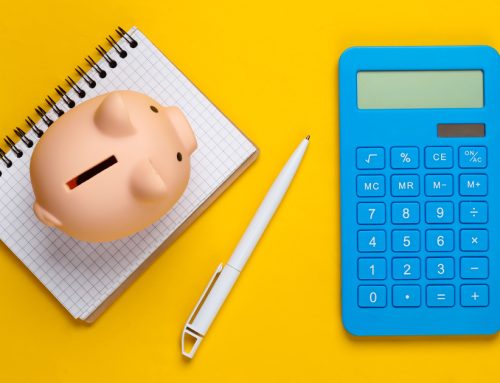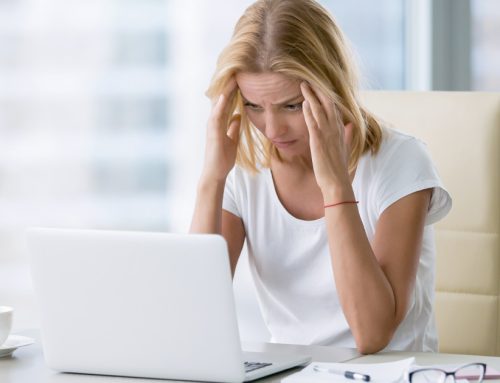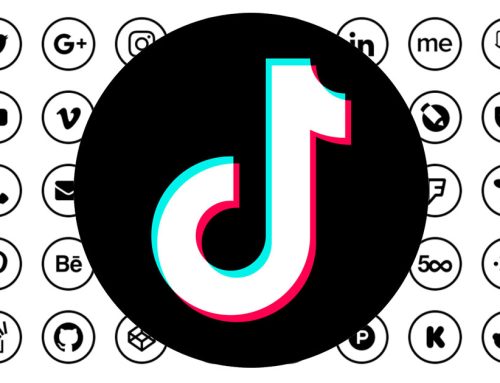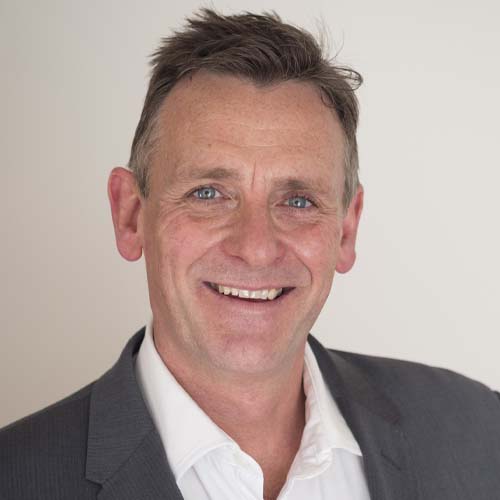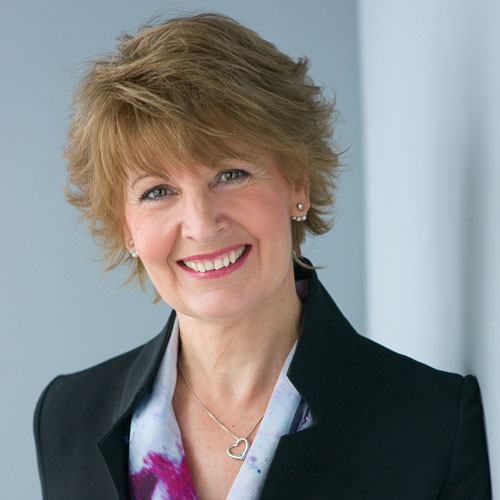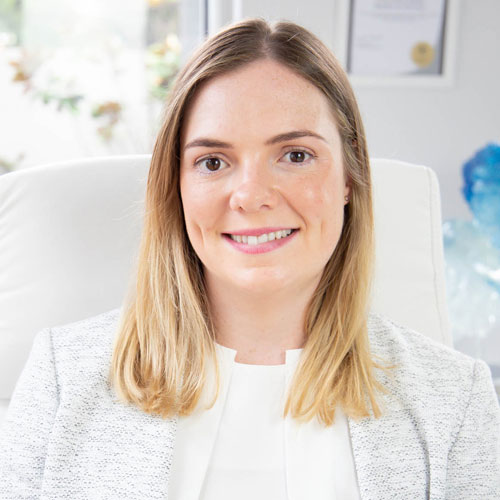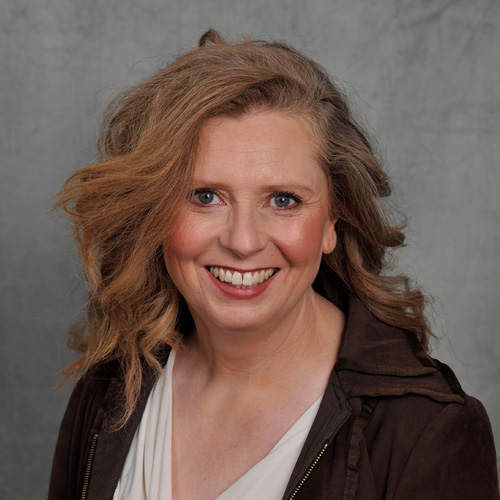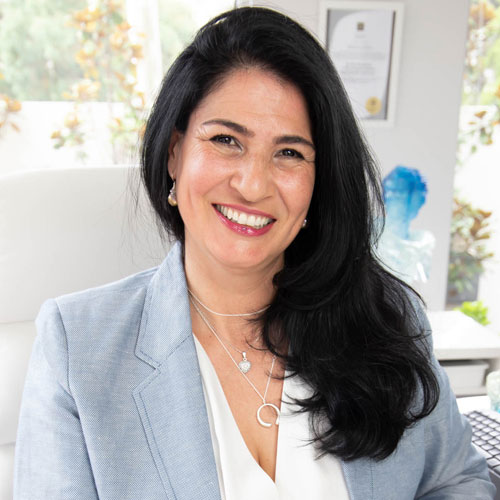PODCAST
TradeSquare
Catherine van der Meulen speaks with Bill Lang from Small Business Australia. You can listen to the podcast or read the transcript provided below with helpful links to things discussed in the podcast.
[The following is a transcription from the podcast with addition of links to related resources]
Catherine van der Meulen (TradeSquare)
Hi, I’m Catherine van der Meulen and joining me today is Bill Lang, the director of Small Business Australia. Who is Bill Lang?
Bill Lang (Small Business Australia)
Look at a personal level, I’ve been involved in small business and big business as a business starter, owner and advisor. From my days at university, when I was with a couple of mates, we used to sell hotdogs at the front of pubs through to a career in international management, consulting and some time at Harvard doing my MBA, and then being involved in a number of technology startups. But then in recent years working with many 1000s of small business owners, on helping them chart a path, and then implement the key steps to have more profitable, more sustainable businesses, so they have more success with less stress.
Catherine van der Meulen
What is profitability and sustainability mean, in a small business world in 2021, do you think?
Bill Lang
I think they mean the same things as they’ve always meant.
So when I talk about profitability, that there’s a level of predictable positive cash flow, to meet, you know, whatever the lifestyle and investment requirements of the business owner are. For many small businesses, the owner is the investor in his operating the business and outside of running and building their business has a certain need for personal income to look after themselves, their family, or whatever. So it’s about positive cash flow, and having a level that you believe is adequate for your needs, and gives you a reasonable return on your effort, your stress, and the money that you’ve got tied up in the business, not to mention the opportunity cost of not doing something else.
Sustainability, I’m not really talking about environmental sustainability when I use that word, but, but it’s really predictability that the products and services that the business is offering, the way the business operates itself, you know, keeping up to date with changing customer needs, their preferences, so you know, you can attract new customers, you can keep your current customers coming back. And so that you can, you know, have that peace of mind that, you know, in terms of, you know, future weeks, future months, there is some predictability and some certainty around the cash flow coming into the business.
Catherine van der Meulen
So really all about that sustainable organisation designed to really stay in business, not only about the sustainability of the environment but the sustainability of the organisation.
Bill Lang
Yeah, absolutely. And that starts with, of course, customers and understanding what is value for customers and ensuring that you are offering and that they’re aware that you’re offering superior value through to who you’ve got working in the business with you as employees or contractors, or distributors, who’s providing you with technology enablement and platforms. And another important part is, of course, the owner, that the owners, you know, wellbeing their own sort of mental health, the fire in the belly, you know, is all on the positive side, as opposed to on the negative side.
Catherine van der Meulen
And so tell us about Buy Local Small Business Australia
Bill Lang
Look at the start of the pandemic it became very obvious to the team at small business Australia and our many members with that we would need a real focus around encouraging customers to be more confident and to support their local small businesses.
So there’s a couple of elements to buy local one is keeping well, so ensuring that the citizens, customers, the employees, and all of us, as individuals understand are consistently doing the two or three key behaviours that stop people getting the virus and spreading the virus. And so we call that keeping well, and then the second component, of course, then is buying local And increasingly, it’s not just about going and visiting face to face with local businesses, but many have now got themselves online, they’ve always had telephones, many are now offering delivery services, but we’re getting out and supporting those hearts and souls of your local community, which are the small business owners and you know, over and above the, we always hear the motherhood statement around being the economic engine room of the economy. And in the case of Australia, 5 million people earn a living as a result of small businesses. But just as important is the fact that these small business owners are the hearts and souls of local communities because they’re the businesses that are providing, you know, the prizes for the school fundraiser, and the trivia night. They’re the ones sponsoring the local rugby club or the local Cricket Club. They’re often the key volunteers in the local community organisation. So it’s important to have those businesses make it through the pandemic, and not just in terms of employment, but in terms of that vital role they play in local communities.
So with Buy Local, we then teamed up with very large companies, the biggest companies in Australia that support the majority of small businesses in Australia brands like National Australia Bank, like Telstra, like Australia Post to like Snap Design and Printing and to work with them to make available at no cost, helpful educational resources, marketing resources, messaging and special offers to help local businesses attract their local customers, save money on staying in business, and start the journey with respect to becoming a more digital business.
Catherine van der Meulen
And if we think about those small business owners, how have resilient, dynamic and resourceful individuals like those owners played a key role in working towards transforming Australian businesses?
Bill Lang
Well, as any small business owner listening to this interview would know, you’re always thinking about your business. So even though the government had talked about the need to hibernate your business, you were always thinking about the business. And then what might change? Would they be going back to the old normal?
You know, we ran it small business Australia with our partners, a whole series of webinars, and they’re all available for free for people to watch. But around the really the survival steps and then the reinvention. And so many of them, you know, very quickly started to get a sense of well, what can they do from a digital infrastructure point of view. But you know, the hardest-hit businesses have been those that have relied upon the physical presence of a customer or rely upon a lot of customers being in a concentrated physical area. And many of them, unfortunately, had not adopted up until now, a bunch of digital technologies, they didn’t have a list of who their customers were and their names and their email addresses and their telephone numbers, because they competed primarily upon location, and offering, you know, good quality service in value products and services in a pre COVID world.
So we’re seeing many, many quickly make the journey in some cases quickly, adapt. You know, we’ve seen, you know, businesses in the distilling industry find short term new markets with respect to making hand sanitiser, we’ve found others that have gone from being high-end restaurants to very quickly becoming local produce distribution businesses, we’ve seen a number, create now fantastic delivery service and sort of ready to cook already to prepare meals from restaurants. So we’re seeing a lot of very sort of innovative, flexible, adaptive behaviour. And of course, it is small business people that are closest to their customers compared to big businesses, and are able to make decisions and make changes quickly.
Catherine van der Meulen
Thinking about the word that you just mentioned around innovation. How do you think small businesses can really adopt innovation? And not just obviously, from a technology perspective, but obviously, innovation in their business models or innovation in their people strategies? Where do you see the most opportunity for innovation?
Bill Lang
I think, you know, we think about sort of any business having the most basic level five processes, we call them the Big Five.

- There’s marketing, that’s the stuff the decisions you make, and the stuff you do to attract inquiries from your target market.
- Then we’ve got the sales process, converting the inquiry into a paying customer. Now you’ve got the paying customer.
- The third process is delivery, and fulfilment, whatever you’ve promised in terms of what they’ve bought, they’re expecting ensuring it gets delivered, whether that’s a product or whether that’s a service.
- Now you have a customer, you need to build a relationship. So the fourth big, big of the Big Five is relationship management.
- And then sitting underneath that operational processes or operations, whether that’s finance, payroll, property, core IT infrastructure, etc.
So when we think of when I use that word innovation, I’m really saying, Well, let’s think about the big five, what’s changed from the customer’s perspective and their needs, and which of these areas do you need to change. So in the process areas are particularly marketing and sales, they need to be much more digitally enabled. If you look at operations, let’s say if you’re in the retail, business and you, you have to buy products and services. You know, there’s a lot of innovation happening there now, in terms of how you can go about doing that digitally. And it’s one of the exciting things about TradeSquare and what it’s going to bring to, you know, 10s of 1000s, if not hundreds of 1000s of small businesses in Australia, particularly outside of the capital cities, this incredible ability now to have access to a much bigger range at their fingertips, really convenient, so that they can offer, you know, much better value proposition to their end customers.
Catherine van der Meulen
And so it’s something that you are truly passionate about, that you are championing to the government, whether that’s been in the past or whether that’s something that you’ve got humming along in the background for the future, what’s something that’s top of mind that you would really like to champion?
Bill Lang
We’ve created a concept called Digital Business Cadets. And in the next few weeks, we’ll be formally launching it and it sort of goes along those lines.
There are many business owners that are a bit older, a bit older, like me, and have had very successful businesses pre COVID. But now COVID has hit and there’s an enormous need to become digitally savvy and digitally savvy quickly. That’s not just with respect to the use of digital tools. But the process of selecting digital service providers, getting those tools then implemented, getting staff trained to use them to maximise the value of them. So I’ve got a bunch of business owners that need more digital business acumen.
And we’ve got a bunch of young people that sadly are facing, you know, longer periods of unemployment. There’s a range of industries that they used to work in, in terms of hospitality and events and recreational services have really been hit. And they’re going to have had to downsize with respect to the impact of the pandemic. Now, they’re very digitally literate. At least, my millennial children, I believe they’re funny with some of the memes that they share on Instagram. But they know a lot about how to use the technology, but they don’t know a lot about business. So the Digital Business Cadets initiative is around combining potentially people underemployed that a digitally savvy and having them learn some business acumen by working with experienced business owners that are lacking on the digital acumen point of view.
So putting one plus one together to equal three. And yet we talked to the government about making almost a new form of apprenticeship and traineeship available or providing some incentives to facilitate this taking place. And you know, we have hundreds of young people that want to be the Digital Business Cadets, and we’re finalising a training programme around that now. And of course, we’ve got hundreds and hundreds of small business owners that want some arms and legs to help them get these digital solutions implemented.
Catherine van der Meulen
So now thinking about those digital solutions, and the combination of the physical and obviously the digital and we’ve been coining a phrase ‘phygital’ to create growth for organisations. How are you seeing Australian businesses bridge the gap between those two?
Bill Lang
Well, I suppose we think about businesses in a couple of sort of sectors, we’ve got those that involve physical products and services, people buying them, then getting them delivered, then they might need servicing. So you know, whether that’s an automobile, whether that’s apparel, whether it’s a gift, so physical goods businesses.
And then we’ve got services businesses, and those services may or may not involve the need for the service provider to physically see or lay their hands on customers or in the case of you know, the healthcare area on patients. So you’ve got to start with breaking that apart. And then you go back and look at those big five processes.
Now we’ve got a great tech company here in Australia in the Allied Health area called VALD, they had already been developing something called TeleHab so that you could do rehab exercises at home via a smartphone you not only could you watch them, but then it would film you doing them and then automatically, your physiotherapist could access that file and then give you some feedback and ensure that you were doing them the right way and doing them on the right frequency, etc. Now COVID hit, they’ve now got customers, giving it away to physiotherapists around the world. They’ve got customers in 96 countries. Now had we talk to the average physiotherapist before COVID and mandated you know, delivery through these sorts of mechanisms, I would not have believed that that was capable.
Now you can look at nearly every product and service and if it involves the physical interaction, you have to ask yourself the question, what elements of that now can happen from a digital point of view? So of course marketing, of course, sales, of course, the core operational processes, taking payments, organising shipping, all of those sorts of things. But as you take that for granted, and you know, here in Australia, I think we’ve got, I saw some research just last week that literally, you know, 45% of small business owners are saying they’re going to invest money and effort in the coming 12 months on improving the use of digital solutions in their business. But I think there are still some areas there where there might be some, you know, business owners and in terms of what they do, they still can’t see how they could do what they used to do in this new world. And I would encourage them to start thinking about how could technology or how could the service be redesigned in a way where more of it could happen, potentially virtually.
The third dimension of this, of course, which is incredibly exciting is that every small business now in our view, can be an exporter, you’re no longer limited to the geographic location of where you’re at unless perhaps you’ve got super fresh food that must be consumed within sort of 30 minutes of it being made available. But beyond that, now, most services can be exported, particularly Business Services, Professional Services, you know, you’ve got a global marketplace, you know, leveraging platforms like Shopify and others. Australia has a great brand, you know, our brand, equity amongst international people is only going to rise, they’ve always seen as being friendly, great place to visit, having very clean food, great environment. So brand Australia, particularly given outperformance during the pandemic versus other countries is only going to strengthen. So that’s the other big opportunities around, you might physically do the packaging or the sourcing of the product down in Australia, but you can market it globally, digitally and tap into global opportunities.
Catherine van der Meulen
And what’s one hot topic around the boardroom table at small business in Australia that you know everyone is ready getting behind?
Bill Lang
Well look a major issue in terms of our leadership and looking at the research coming in from our members is what forms of ongoing support and needed for businesses where the customers effectively by law have dried up. So travel agencies is a good example. Australians aren’t going overseas and may not be going overseas for the foreseeable future. But that was an industry with 4,000 independent small business owners that didn’t earn any new revenue in 2020. And have spent the whole year looking to get people refunds and are on the verge of having some small levels of government support fully withdrawn.
And so we’ve got some industry sectors like that were across the full number of small businesses in Australia, there are still a few 100,000 that in the next 60 to 90 days may have to close for good. And if that is the case, if they do need to close because there is no demand for their products and services, we want to ensure a couple of things. One is that there are no implications, no bankruptcy-related implications that are brought against these business owners who through no fault of their own, have had to go out of business. And that secondly, because they’re quick learners, because they’re self-starters, because, you know, they’re hands-on, to provide support, whether that’s from an educational training coaching perspective, or in some other area to help these business owners get going again in something else. Because the reality is Catherine, that small business owners are made, they’re not born. So we need to keep these people going. Because they are going to be some of the great innovators in terms of pursuing the new opportunities that things like COVID has created.
Catherine van der Meulen
And so what do you think economic freedom looks like in Australia this year?
Bill Lang
Economic and freedom, well, I think about it from an individual’s point of view and people will often ask us, what do we mean by success. And I think, you know, success is being able to spend as much time as you can, using the skills you love using, interacting with people that you care about, and related to a cause, product or service that you’re passionate about. And being able to generate enough financial security to meet whatever your lifestyle goals. So for me, the economic side of things is around being able to generate that level of income in the way you would like to do it with a level of stress, the amount of time and energy that you need to put into it, and to having as much freedom as possible as to how you go about doing that. And ensuring that you’re complying with, with all the laws of the land, and doing good by the customers and by the market and paying your taxes.
Catherine van der Meulen
And if we’re thinking about, say, three or five years ahead, and we’re looking back on the last few years, and we’re looking back through a lens of small business in Australia, what do you think small business looks like in the years to come?
Bill Lang
Look, if we assume that things like the pandemic will be controlled, that we’ll have you know, the need for ongoing vaccinations and things. And of course, we’ll have seed into our memory.
Now the impact of lockdowns and the changes in consumer behaviour and the livelihoods that were destroyed. And of course, the lives that have been lost and some people with COVID that have recovered, but will have ongoing issues that they’ll need to deal with their personal health. So I think we’re going to have a level of sensitivity to how quickly things can change due to you know, biological related agents. I think we’re already seeing a greater sensitivity now to what the implications of global warming will be.
So I think there’s there’s a few things that that means from a small business point of view that, you know, increasingly looking at businesses that are not asset-intensive, that don’t necessarily require the need to commit to long term leases and the use of lots of property, but we’re going to see more and more a movement towards asset-light related businesses that you get involved with. And of course, with the cloud and the Internet, and so many things now, there’s never a better time in the history of economics, and the world to start a business of what there is now. So we’re gonna see a lot of new entrepreneurs come in, because literally everything you need, you can rent on the internet now, whether it’s a CRM system, whether it’s someone else with digital marketing, you know, the only limit is your creativity and your persistence, to you know, find and validate a market with some customers and to develop that market. So, I think we’re gonna see a lot of smaller, almost totally digital-related businesses.
And we’re gonna see groups of people coming together with different skill sets, almost like you see actors and producers and directors come together in terms of a Hollywood movie, that there’ll be projects and opportunities that people will pursue. And I think the third area will be more already seen this in terms of some projects that I’m involved with some very large companies looking to tap into that entrepreneurial skillset and mindset of bringing the best of small into the best of big to come up with the best.
Catherine van der Meulen
And finally, Bill, what’s your call for action from the TradeSquare community?
Bill Lang
Look, I think everyone, you know, think local, by local, support those local businesses. You know, if you’re involved in TradeSquare, you’re already well on the journey of becoming a much more digitally savvy business, if you’re able to afford and it economically, and you can pay a little bit more for a local product, think about the broader contribution you’re making to your local community to the local village that you’re in.
But again, for TradeSquare is a great initiative, it’s going to be incredibly successful, because it’s going to enable businesses to offer much more to their customers in the ways they want it offered, as going to help them access things that in terms of you know, minimum order quantity, and those sorts of things that haven’t been easy to access in the past. And I think we’ll see the emergence of new trading relationships between wholesalers and retailers, that will further deliver more value ultimately to the end customer, a consumer, but for everybody who’s involved in that chain

